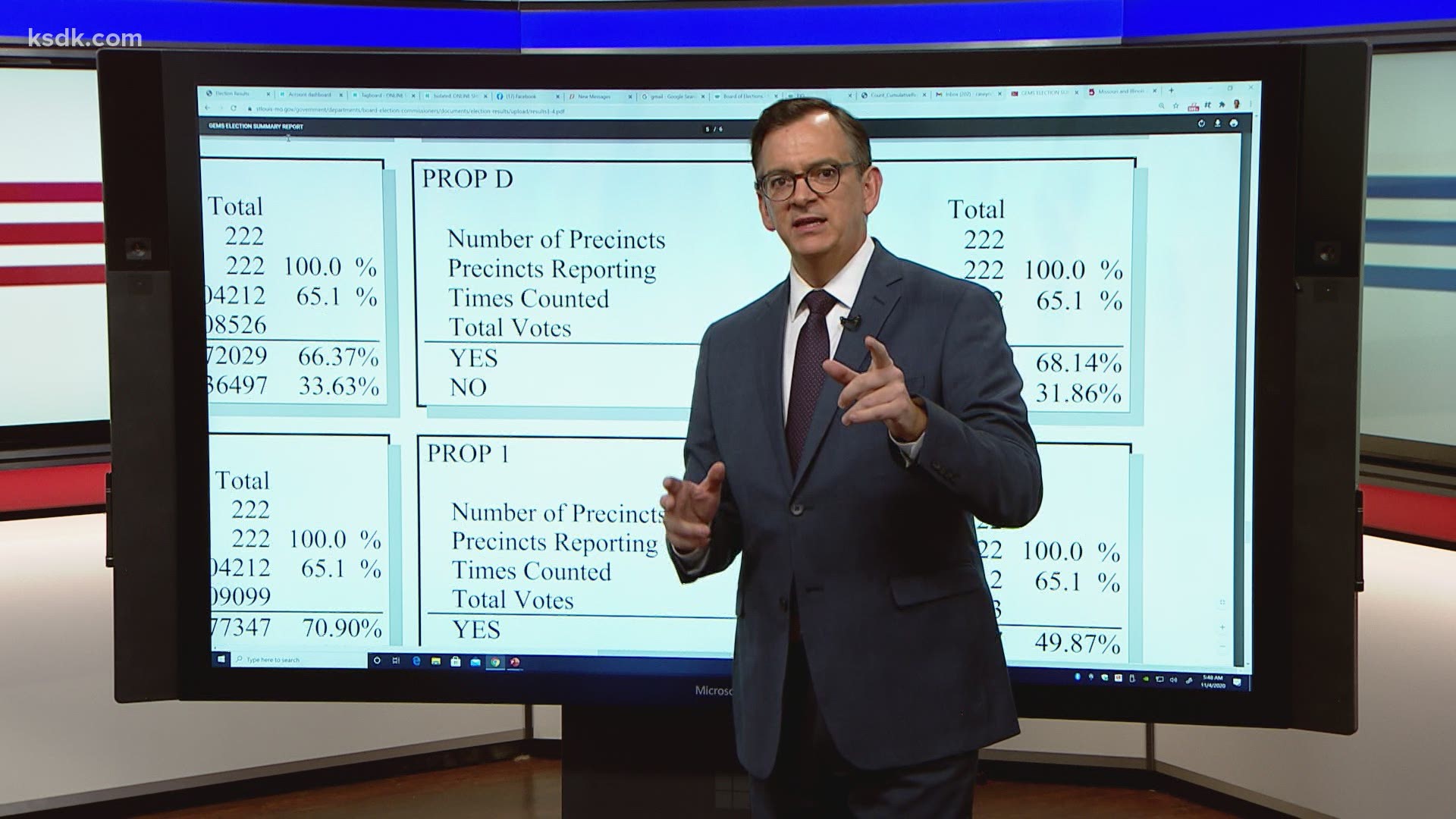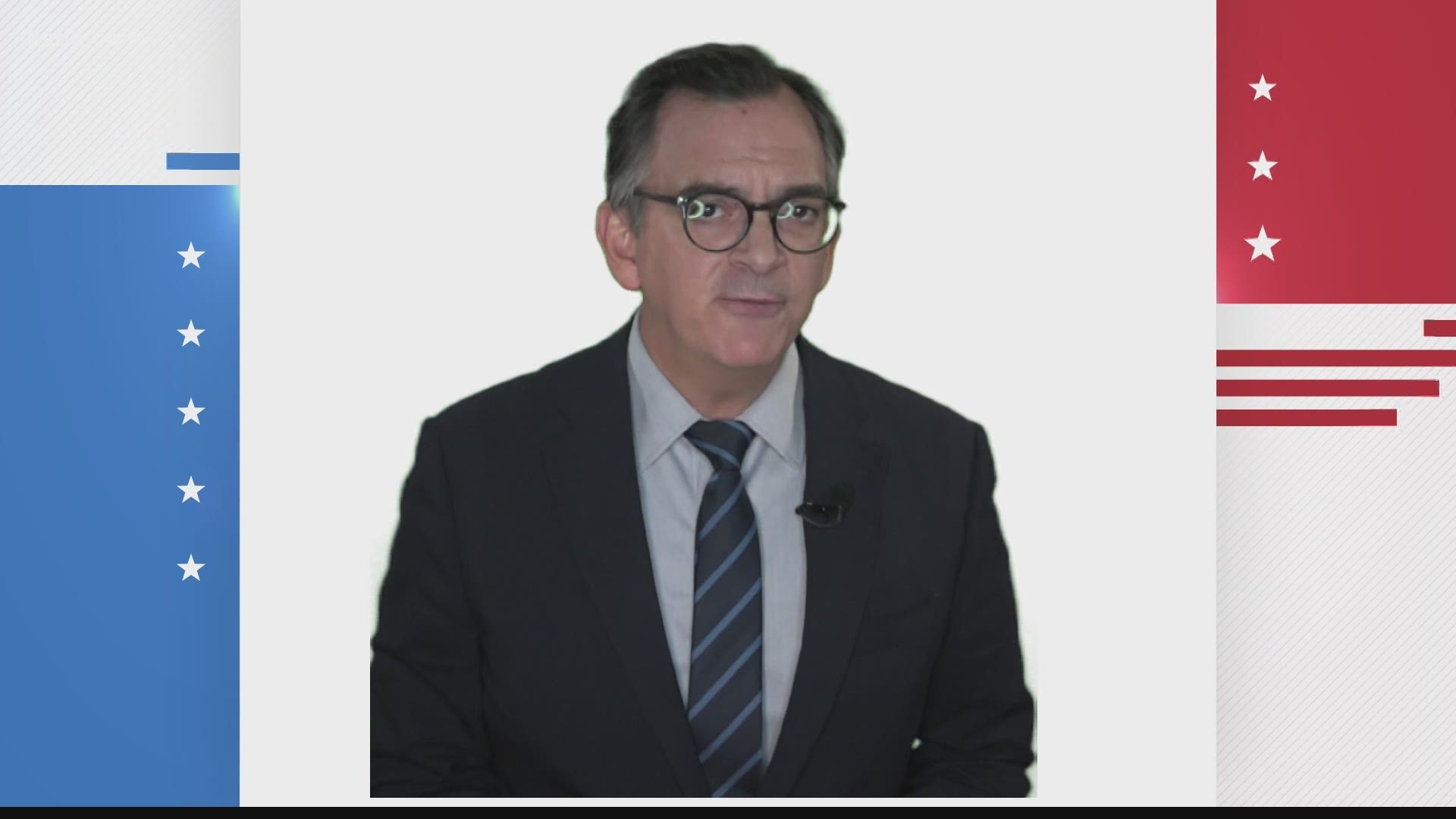ST. LOUIS — Proposition D, which would do away with the partisan primary system in heavily Democratic St. Louis city, passed Tuesday.
Proposition D will establish non-partisan elections — often referred to as approval voting — for the offices of mayor, comptroller, the board of aldermen president and the board of aldermen.
The proposition passed by a wide margin, with nearly 70% of ballots cast in favor of the proposition.
In 2018, Fargo, North Dakota became the first city in the country to use approval voting for citywide elections.
Under the system, candidates from all parties would appear together on the primary ballot, and voters could vote for as many candidates on the ballot as they want regardless of party. The top two candidates from the primary would face each other in the general election, regardless of their political party.
St. Louis skews strongly Democratic, and so the winner of the Democratic primary generally goes on to win the general election. Proponents of Proposition D say allowing non-partisan elections will give voters the chance to choose who they think is the best fit for the job instead of simply voting along party lines.
For example, under this system, St. Louis Mayor Lyda Krewson would have faced fellow Democrat and city treasurer Tishaura Jones in the 2017 mayoral election, possibly leading to a different result.
"We need to have a top-two runoff," said Jones last week. She supported Prop D's passage. "Partisan primaries, at least the way our system is currently setup, allows for spoiler candidates - people who are in the race that are there just to take votes away from other people...that's what we saw happen in 2017."
Another city Democrat, Board President Lewis Reed, is speaking out against Prop D.
Reed points out that what Prop D is proposing is known as "approval voting" and not "rank choice" voting which allows voters to rank candidates according to their preference.


